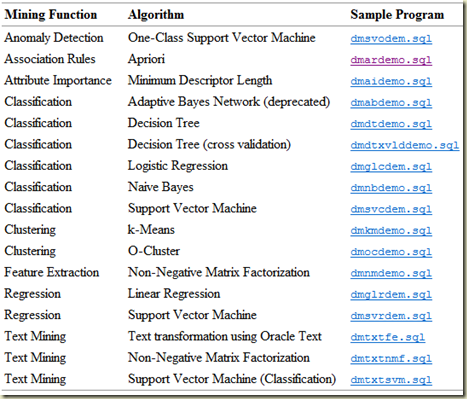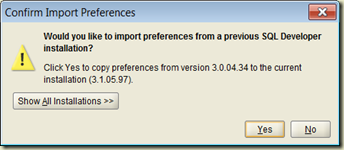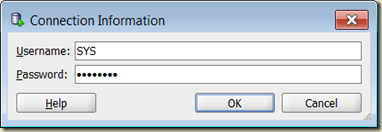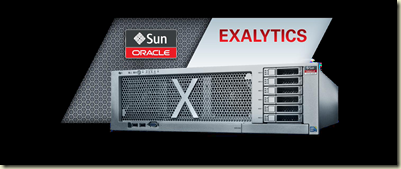The Oracle 11.2 database contains 3 PL/SQL packages that allow you to perform all (well almost all) of your data mining functions.
So instead of using the Oracle Data Miner tool you can write some PL/SQL code that will you to do the same things.
Before you can start using these PL/SQL packages you need to ensure that the schema that you are going to use has been setup with the following:
- Create a schema or use and existing one
- Grant the schema all the data mining privileges: see my earlier posting on how to setup an Oracle schema for data mining – Click here and YouTube video
- Grant all necessary privileges to the data that you will be using for data mining
The first PL/SQL package that you will use is the DBMS_DATA_MINING_TRANSFORM. This PL/SQL package allows you to transform the data to make it suitable for data mining. There are a number of functions in this package that allows you to transform the data, but depending on the data you may need to write your own code to perform the transformations. When you apply your data model to the test or the apply data sets, ODM will automatically take the transformation functions defined using this package and apply them to the new data sets.
The second PL/SQL package is DBMS_DATA_MINING. This is the main data mining PL/SQL package. It contains functions to allow you to:
- To create a Model
- Describe the Model
- Exploring and importing of Models
- Computing costs and text metrics for classification Models
- Applying the Model to new data
- Administration of Models, like dropping, renaming, etc
The next (and last) PL/SQL package is DBMS_PREDICTIVE_ANALYTICS.The routines included in this package allows you to prepare data, build a model, score a model and return results of model scoring. The routines include EXPLAIN which ranks attributes in order of influence in explaining a target column. PREDICT which predicts the value of a target attribute based on values in the input. PROFILE which generates rules that describe the cases from the input data.
Over the coming weeks I will have separate blog posts on each of these PL/SQL packages. These will cover the functions that are part of each packages and will include some examples of using the package and functions.



![SNAGHTML1383bc81[4] SNAGHTML1383bc81[4]](http://lh4.ggpht.com/-JV54OxyjHAs/TpVm_Dfeh7I/AAAAAAAAAIw/p4-nxrgEJ3w/SNAGHTML1383bc81%25255B4%25255D_thumb%25255B1%25255D.png?imgmax=800)


